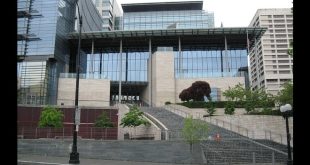 An Alabama group recently issued a public call for two U.S. Supreme Court justices to recuse themselves from a case involving same-sex marriage based on their previous activism regarding the issue.
An Alabama group recently issued a public call for two U.S. Supreme Court justices to recuse themselves from a case involving same-sex marriage based on their previous activism regarding the issue.
Foundation for Moral Law President Kayla Moore explained the concerns her organization has with recent comments and actions by Justices Elena Kagan and Ruth Bader Ginsburg. Both women, she explained, have officiated at gay marriage ceremonies and otherwise revealed, in violation of the court’s code of conduct, how they might vote in a pending case filed by the State of Utah.
“Justice Kagan’s actions are especially improper,” Moore asserted, “because she performed this same-sex marriage while a case concerning same-sex marriage is pending before the Supreme Court.”
Thus it is clear, she added, which way she would vote in the case, which seeks to overturn Utah’s ban on gay marriage.
Just over a year ago, Ginsburg performed a gay marriage ceremony in Washington, D.C. Earlier this month, she indicated that the nation’s highest court would act with “some urgency” in responding to any potential appeals court ruling in support of traditional marriage.
Justice Ruth Bader Ginsburg Violates Judicial Code of Conduct by taking negative position on marriage one man/women law before case is heard
— RussVet (@RussVet1) September 20, 2014
For this statement, the Liberty Counsel also cited her perceived violation.
“In casting a vote publicly before the case is even heard,” said organization founder and chairman Mat Staver, “Justice Ginsburg has violated the Judicial Code of Conduct. It is now her duty to recuse herself from cases involving same-sex marriage.”
In a press release this week, the Foundation for Moral Law cited the Code of Conduct for United States Judges, which states, “A judge should not make public comment on the merits of a matter pending or impending in any court.”
Moore concluded that these two justices have done exactly that.
“Officiating at a same-sex wedding involves not only comment,” she said, “but also actions that speak louder than words and creates at least an appearance of impropriety.”
Photo credit: Wake Forest University School of Law (Flickr)
BCN editor’s note: This article first appeared at Western Journalism.
 CURE News and Clergy Blog News and Commentary for Christians
CURE News and Clergy Blog News and Commentary for Christians



